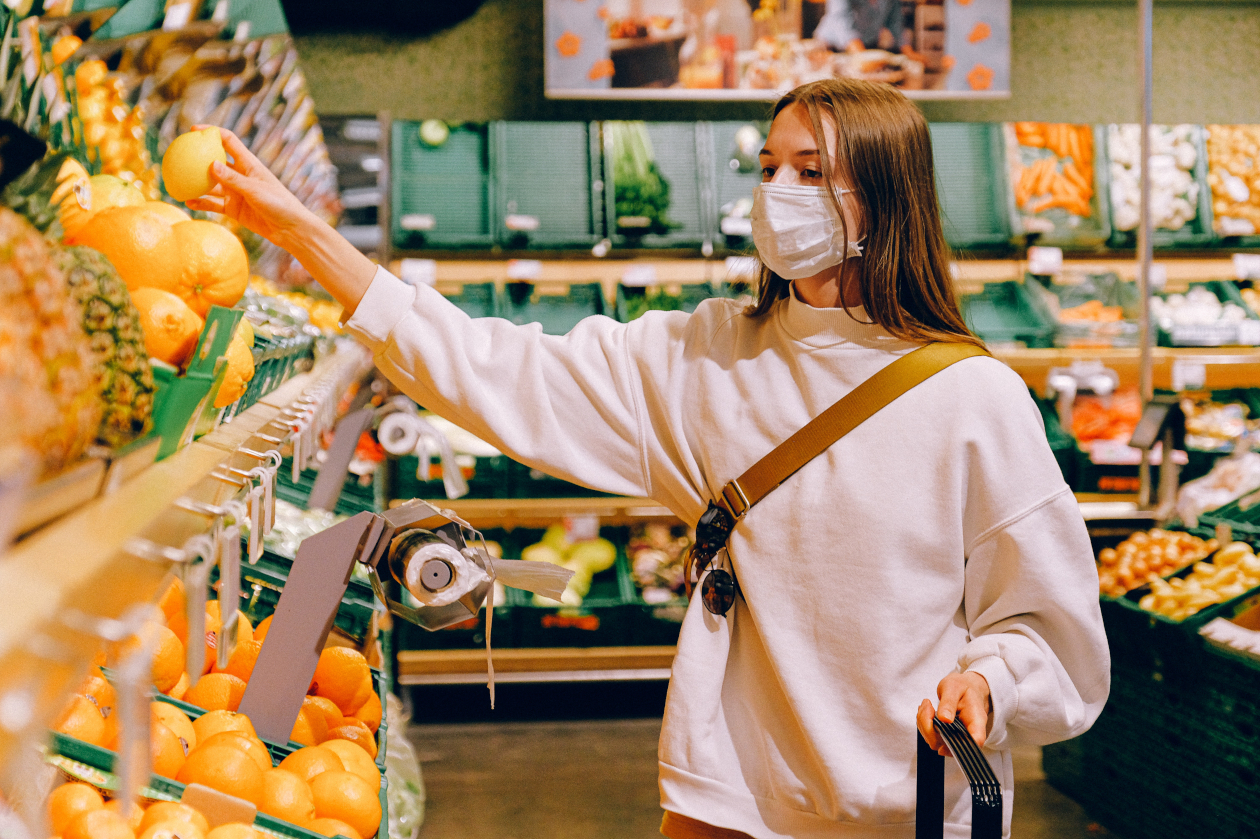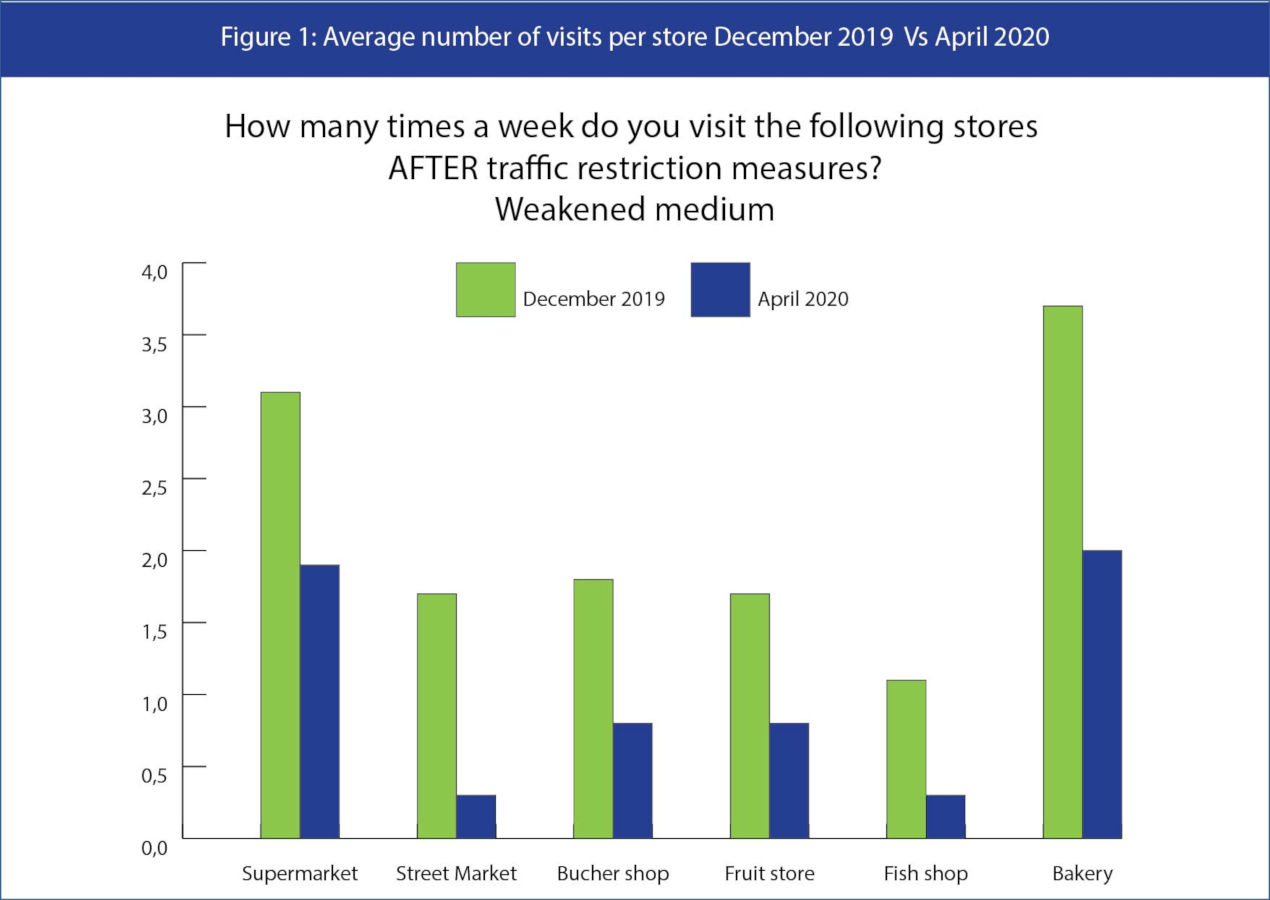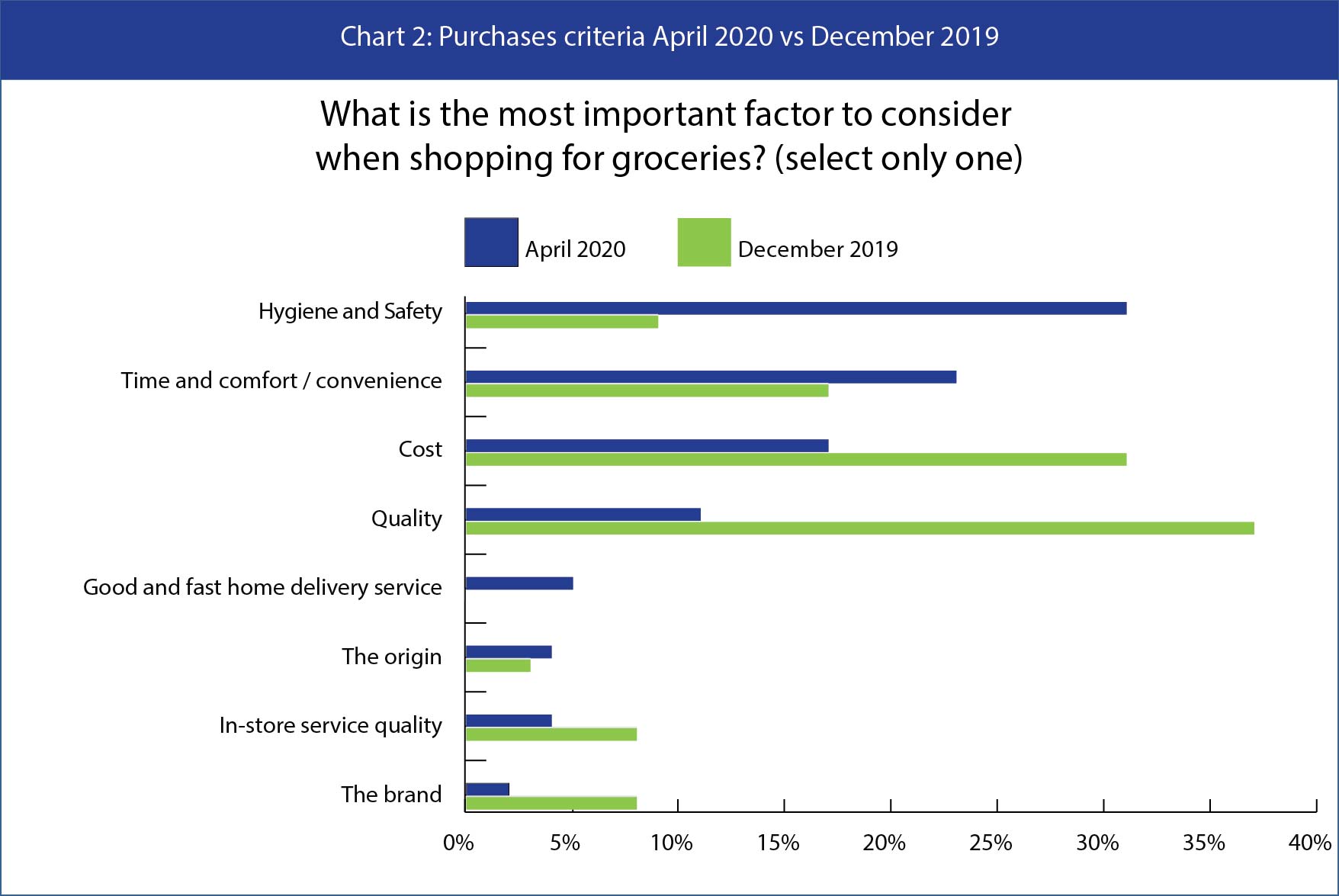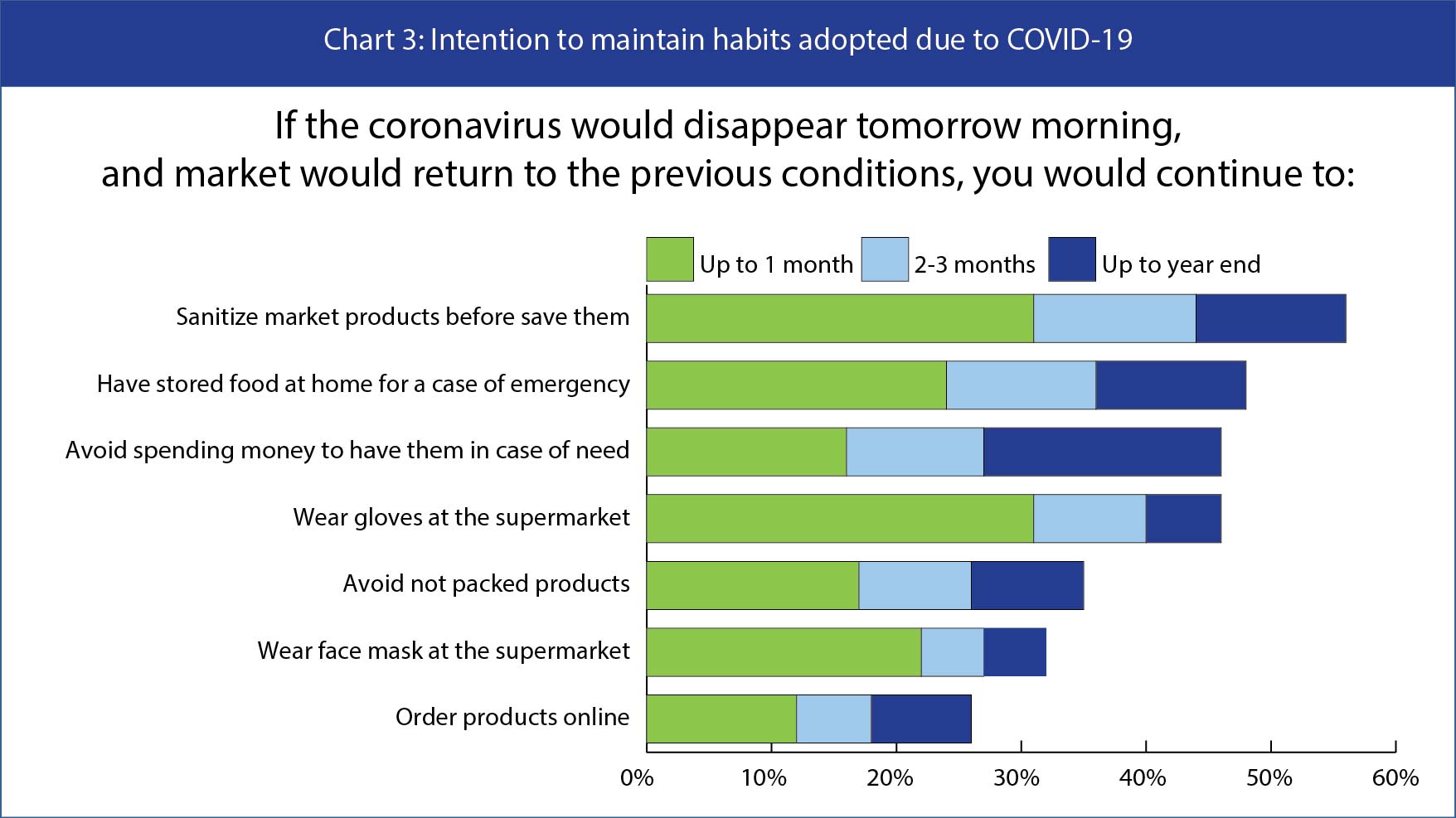55% less visits to food stores due to COVID-19 crisis
COVID-19 and supermarket purchases: The corona crisis is changing consumer habits
Thursday, May 28, 2020

- 55% less visits to food markets than before.
- Only 0.1% of consumers visit stores 7:00 to 8:00 a.m.
- Hygiene, safety, speed and comfort are the main customer priorities
- 1 in 3 consumers will maintain their behavior even after avoiding the risk of pandemic
IELKA (Institute of Retail Consumer Goods) conducted a consumer survey, on the consumer habits due to the occurrence of CODID-19 virus in Greece, with 1,050 responses between April 12 and 14, 2020. The results show that traffic restriction measures have affected both the buying and dietary habits of the public, while these changes will affect the market for a long time.

Visits to food stores, have been affected in a high level, by traffic restrictions. Specifically, as shown in Figure 1, the average number of weekly visits to food markets has dropped from 13.6 to just 6.1, or 55%. The largest percentage change is recorded in Street Markets where visits have decreased from 1.7 to 0.3 by 83%. The smallest, but still significant reductions are recorded in supermarkets and bakeries by 44%, from 3.4 to 1.9 and from 3.7 to 2.0 respectively. The measure of expanding operating hours, seems not necessary due to the significant reduction in visits. Besides, data collected by IELKA show that only 0.1% of the customers visit the supermarket stores from 07:00 to 08:00 am.

At the same time, particularly significant changes are recorded in relation to food selection criteria. Specifically, as shown in Figure 2, while in the December measurement the main criteria for food selection were quality and price, during April the picture has completely changed and the main criteria became Hygiene and Safety with 31% and time-comfort- ease with 23%. This trend is clearly linked to the COVID-19 pandemic, as consumers first and foremost seek protection against coronavirus and secondarily the speed of the visit, which is also linked to the restrictions to access stores, but also with the lowest possible exposure to infection risk.

The research also examined the consumers’ intention to maintain new habits adopted due to the pandemic and traffic restriction measures. The main trend that will be maintained by most consumers is to sanitize the products before storing them at a rate of 59%, with 25% stating that they will do so for at least 2 months after the risk ceases. The second trend is to store food at home in case of emergency, which will continue to be adopted by 1 in 2 consumers (48%). The trend with the longest-lasting effect, however, seems to be to avoid spending in order to have money in case of emergency, which will be maintained by 46% of the public, but with 19% stating that they will do so by the end of 2020. 46% will continue to wear gloves and 32% face mask. 35% will continue to avoid not packed products, while 26% will continue to order products for home delivery.
Source: ielka.gr
